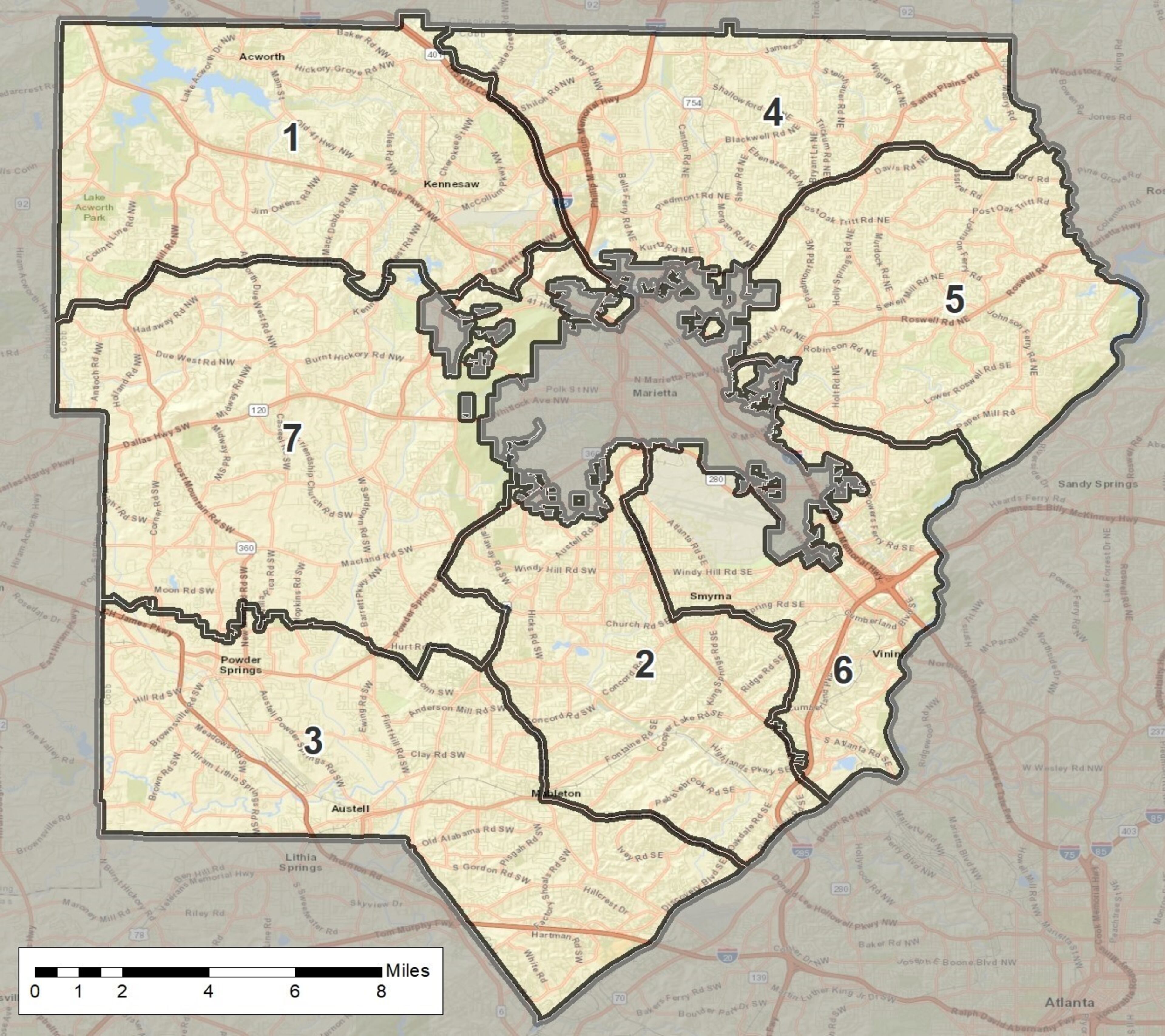Cobb lawmakers talk school board map ahead of judge’s deadline




State lawmakers from Cobb County debated two proposed school board maps in a heated delegation meeting Monday morning — the first day of the 2024 legislative session.
A federal judge gave the Georgia General Assembly until Jan. 10, 2024, to adopt a new map of school board voting districts in Cobb County, according to a preliminary injunction granted last month. It’s a deadline state Rep. Teri Anulewicz says is impossible to meet.
“Any legislation has to be read three times on three separate days in each chamber,” said Anulewicz, who represents Smyrna and chairs the Cobb delegation. “It is legally impossible to pass any legislation through both chambers by the third day of the legislative session.”
Voting rights groups, led by the Southern Poverty Law Center, sued the Cobb County Board of Elections in 2022 over new maps for the seven Cobb school board voting districts. They alleged that the maps were discriminatory and “packed” people of color into small areas to dilute their voting power.
U.S. District Judge Eleanor L. Ross agreed in the injunction that the plaintiffs will likely be able to prove that racial gerrymandering took place. The court found evidence supporting that “race was the predominant motivating factor” behind the map, according to the order.
The Cobb County School District was not named as a defendant in the lawsuit but joined as an intervenor to defend the map. Ross ruled in July that the district is not liable in the case, but the district has repeatedly affirmed its intent to continue in the lawsuit. It filed an appeal to the judge’s injunction, and a spokesperson said in a statement that the 2022 map “best represents Cobb County and is legally compliant.”
“The district remains focused on the legal process and the board’s recommendation as part of the lawsuit, which is currently pending the 11th Circuit,” the statement says.
Anulewicz and Sen. Ed Setzler (R-Acworth) both presented maps to replace the one removed by the judge’s preliminary injunction.
Whichever map the Legislature passes will be used in the upcoming school board election on May 21, 2024, though the plaintiffs and defendants in the lawsuit will have a chance to file objections. The redrawn map will stay in place through the resolution of the lawsuit until a judge rules otherwise, and the voting rights groups will still have to prove that the map passed in 2022 is unconstitutional. If they do, the judge could make the preliminary map permanent, or establish a new one.
Setzler’s proposed map more closely resembles the one brought by Republican lawmakers in 2022 that the judge ordered them to redraw. He said the map will maintain the majority Black district and lower the percentage of people moved into a new district.
The map Anulewicz presented is modeled after the map presented by the Democratic delegation chair in 2022, which more closely resembles the district map from 2012 while protecting communities of interest, like cities and high school districts, she said.
Neither map removes incumbents, or would change the political leanings of a district, both lawmakers said.

To follow the procedure for local bills, a majority of the delegation must sign on to one of the maps, which Anulewicz said will be difficult for both parties given the delegation’s makeup — a partisan split with Democrats barely in the majority.
In 2022, state lawmakers bypassed the traditional process with maps for the Cobb school board and the county commission by moving them through the entire Legislature rather than getting the approval of a majority representing the area.
Those maps bolstered GOP commission districts where Democrats flipped county-wide seats and gained control in 2020. The school board is the last remaining governing body where Republicans hold a majority.
In a heated exchange in the delegation meeting Monday, state Rep. Lisa Campbell (D-Kennesaw) asked why lawmakers would bypass the process for local legislation. Several Republicans responded if they cannot garner enough support to pass the map locally, then they must move the bill to the entire Legislature — a move that benefits Republicans because they have a majority in the General Assembly.
“So that would mean that this body is choosing not to continue to negotiate with each other,” Campbell said, which Republicans denied.
The delegation will meet again this week to review both maps and determine which one will garner a majority’s support, but they will not fully pass a map before the judge’s deadline.




